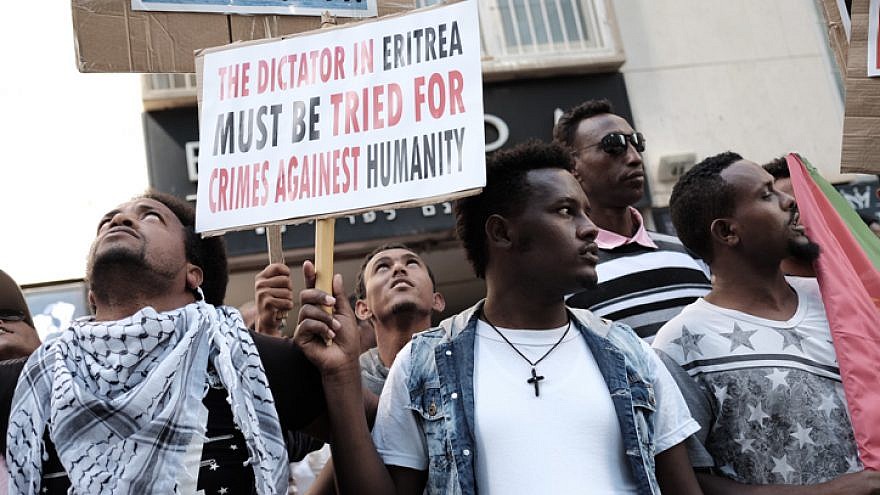In a dramatic turnaround, Israeli Prime Minister Benjamin Netanyahu has frozen a plan reached with the United Nations High Commissioner for Refugees on the deportation of African migrants just hours after it was announced.
“In the last few weeks, following tremendous pressure on Rwanda by the New Israel Fund and elements in the European Union, Rwanda has withdrawn from the agreement and refused to absorb infiltrators from Israel who are forcibly removed. Due to this, I decided to strive for a new agreement that would allow us to continue deporting the infiltrators,” Netanyahu said in a Facebook post.
“However, I am attentive to you, and first and foremost to the residents of southern Tel Aviv,” Netanyahu said, referring to the neighborhood that is home to many of the migrants, which has been plagued by crime and complaints from long-term residents. “Therefore, I decided to meet, together with Interior Minister Aryeh Deri, with representatives of the residents of southern Tel Aviv tomorrow [Wednesday] morning.”
“In the meantime, I am suspending the implementation of the agreement, and after I meet with the representatives, I will bring the agreement to a new examination.”
Earlier on Monday, Netanyahu’s office announced an unprecedented deal with the UNHCR to resettlement some 16,250 migrants, mostly Sudanese and Eritrean illegal immigrants currently residing in Israel, to various Western countries, with another 18,000 being allowed to remain in the state.
However, he faced significant criticism from members of his right-wing coalition, who said the new deal would award those who have broken the law.
Education Minister Naftali Bennett said that “granting legal status to 16,000 infiltrators will turn Israel into a paradise for infiltrators and is a surrender to the false campaign spread in the media in recent months. By signing this agreement, we are sending a dangerous message to the whole world: Whoever succeeds in infiltrating Israel illegally will get a prize of legal residence here or a Western country.”
The previous plan, which was due to go into effect on Sunday, would have seen Israel expel migrants to African countries such as Rwanda. That earlier policy, which offered each migrant $3,500 and a plane ticket, was widely condemned by activists and the United Nations, and had been delayed by a Supreme Court ruling.
According to a report by the Population and Immigration Authority, some 34,187 Sudanese and Eritrean nationals are illegally in Israel, some of whom are seeking political asylum.


























